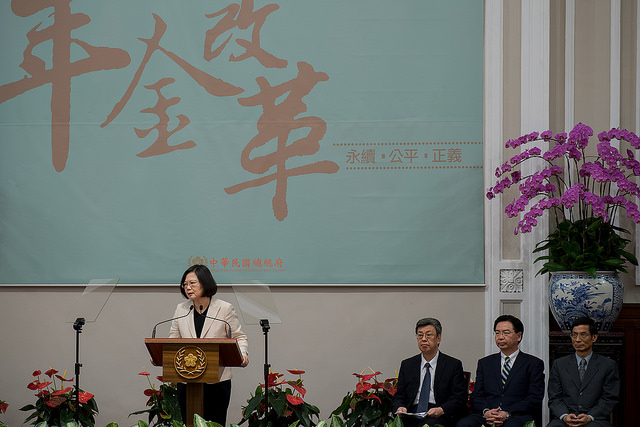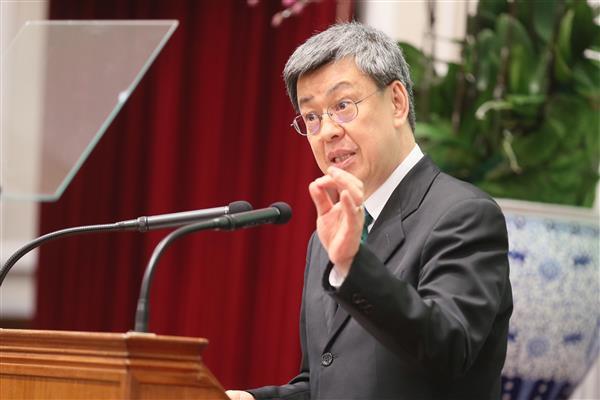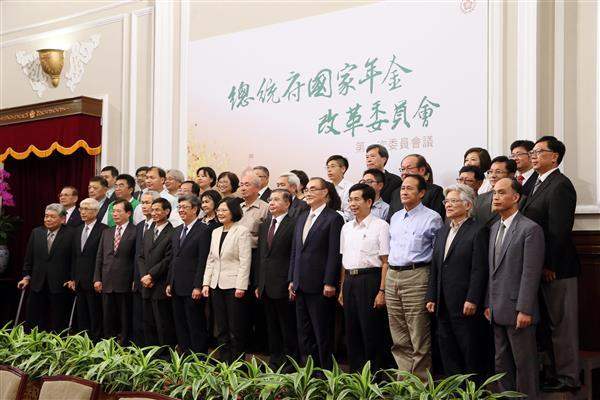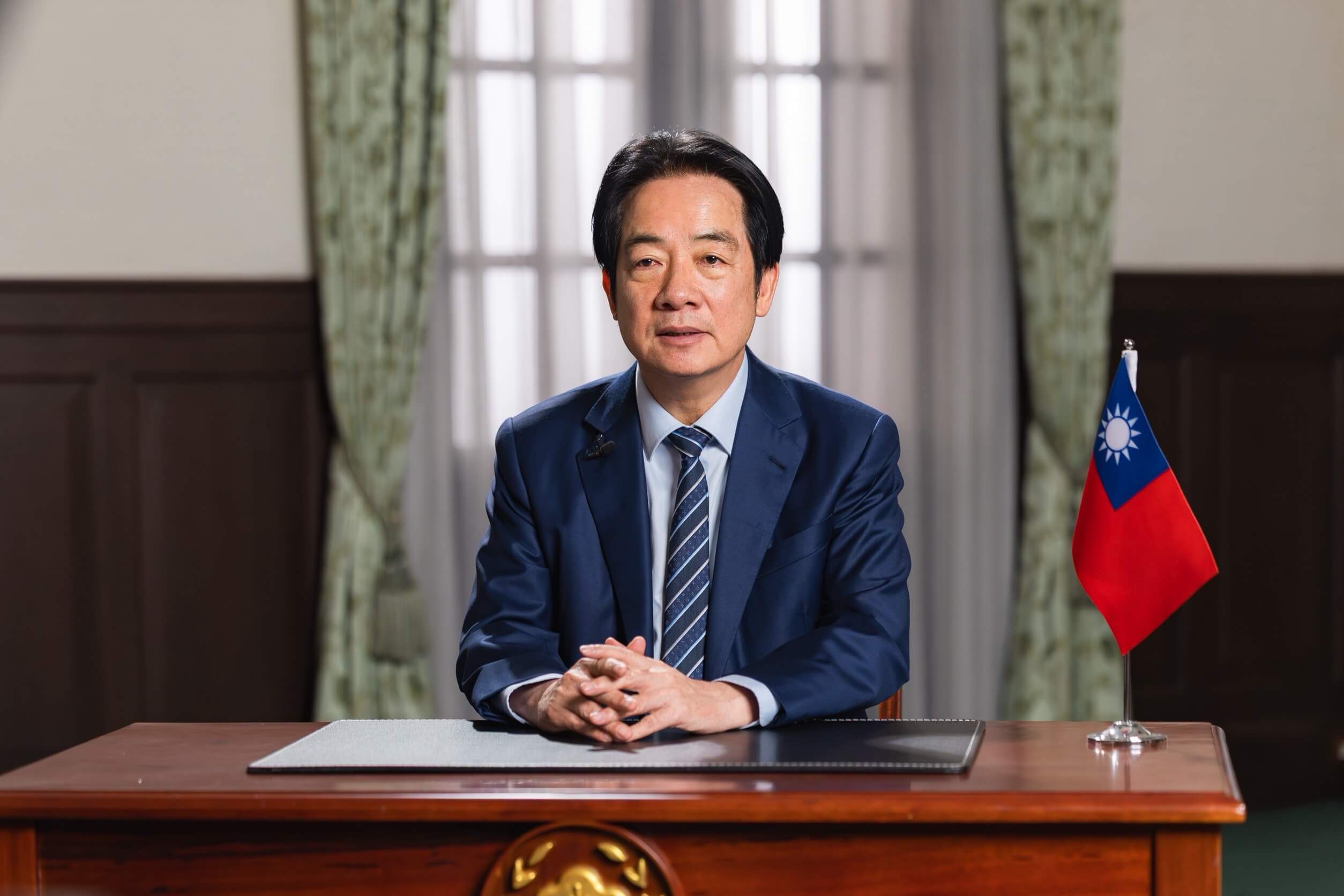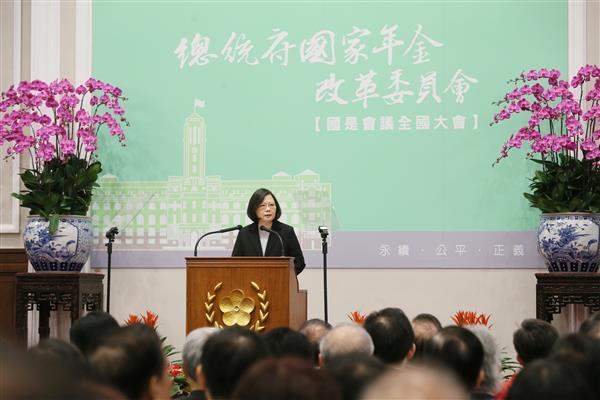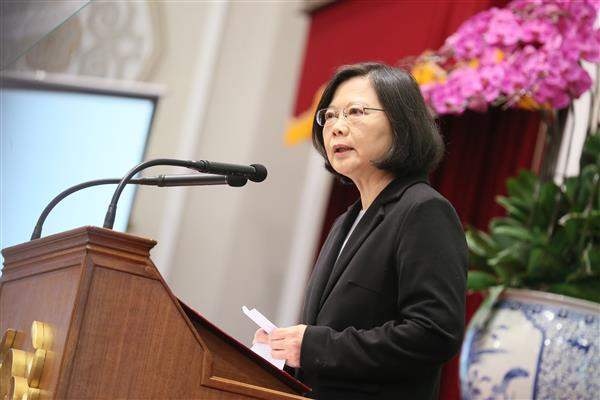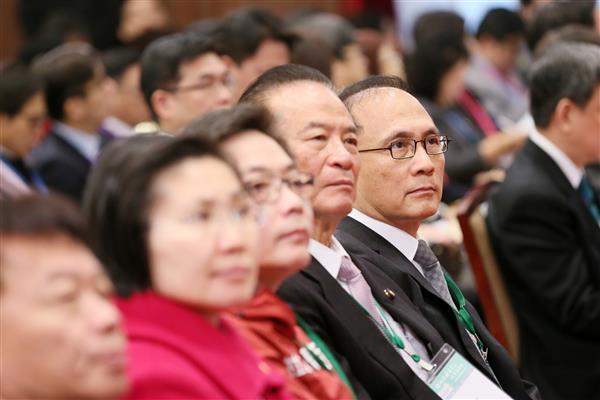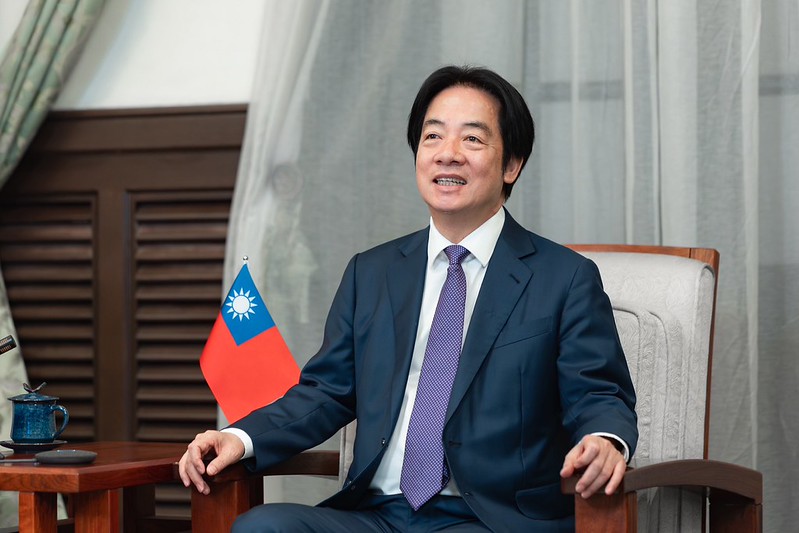News & activities
 News releases
News releases
In remarks at the opening ceremony for a national congress on pension reform on the morning of January 22, President Tsai Ing-wen stressed that the goal of pension reform is to ensure a sustainable pension system in which "the government can afford to pay pensions, and retirees can receive them, now and in the future." What we are proposing today is a sound approach to reform. We aren't insisting on solving everything all at once; rather, we will seek to gradually improve the system over a period of years in order to cushion the impact of the changes that will be made.
"If we don't act on pension reform today, we'll regret it immediately," said the president, adding that we absolutely must succeed, and the longer we wait, the more painful the changes will be. For some time now, said the president, we've been seeing a lot of misinformation, and various attempts have been made to keep this congress from taking place, but there is no way this could have delayed the process. The reform effort simply must move ahead on schedule.
The following is a translation of President Tsai's complete remarks:
I believe all of you know that Vice President Chen Chien-jen held a press conference the other day and put forward, in a very responsible manner, a draft pension reform proposal to serve as the basis for discussions during this national congress.
This draft proposal is the result of 20 meetings of the Pension Reform Committee as well as four regional pension reform congresses. In the process, we have received a broad range of input.
The draft proposal puts forward a very sound plan. We aren't insisting on solving everything all at once; rather, we will seek to gradually improve the system over a period of years in order to minimize the impact.
The provisions of the draft proposal would eliminate the 18% preferential interest rate, lower the income replacement rate for civil servants and educators, set a pension income floor, phase in adjusted premium rates, improve pension fund efficiency, and establish a mechanism for the government to boost pension fund financial resources. In addition, the draft proposal would also deal with unreasonable facets of the current pension system including decoupling party and government pensions, and doing away with the practice of counting the earnings of political appointees toward their earnings as career civil servants, to which the 18% preferential interest rate applies.
A key purpose of these actions is to ensure a sustainable system under which "the government can afford to pay for pensions, and retirees can receive them, now and in the future."
I strongly hope that you will all be able to express your valuable opinions during today's congress and help bring about a more sound system.
For some time now we've been seeing a lot of misinformation. People have been spreading rumors on the LINE app, and various attempts have even been made to keep this congress from taking place, but there is no way this could have delayed the process. The reform effort simply must move ahead on schedule.
Many people have asked why pension reform must involve so many meetings.
We are doing this because we've reviewed the reasons for the failed reform attempts of the past. Past reform efforts were short on public discussion. This time, before the government puts forward a final proposal and submits it to the Legislative Yuan for deliberations, we want to open up the process for "expanded participation" so that representatives of all stakeholders have ample opportunity to state their views.
The pension funding crisis has been building for decades. To spend a half year analyzing the problem and developing a reform proposal is not only time well spent, it is truly necessary. I firmly believe that many years from now, when we all look back at these past few months, we'll be very glad that we buckled down and got through this process.
This sort of process is significant in two big ways. First, we are enabling society to better understand the details and the importance of pension reform.
In the past, there was majority support for reform, but the great complexity of the system meant that a lot of people didn't understand the many problems involved.
Now, however, the pension system crisis has been fully exposed, so we have a better understanding of the importance and urgency of reform, and we're more determined to carry through.
Second, we need to devise a reform proposal that is more concrete and reasonable.
From the very beginning, we've never felt that pension reform can be treated as a "my way or the highway" proposition. Nor is it a matter of the government issuing an announcement then whipping up support for it. People have different ideas and different positions. Disputes are inevitable. Meetings focusing on pension reform have of course been contentious. But as a result, we've been able to hear lots of different viewpoints and incorporate them into our reform proposal.
In one meeting after another, we have heard very valuable views regarding many different issues, such as calls to have the military pension system handled separately, the question of whether there should be special pension age exceptions for police officers, firefighters and elementary and middle school teachers, questions concerning the currently favored gradual approach to pension reform, and the setting of a pension income floor.
I know there will be people protesting today outside the Office of the President. When anyone's interests are affected, they will feel dissatisfied. I can understand how they feel.
However, only a sustainable pension system can ensure that everyone will be able to receive pension benefits, including those of you who are out protesting today, and your children.
Four years ago this January, at this very same location, former President Ma Ying-jeou spoke in strong terms about the urgent need for pension reform. He said that a pension system involves both self help and mutual help. He said it is not a matter of "your pension" or "my pension," but of "our pensions" and "the pensions of our children and grandchildren." The pension system, he said at that time, "must not and will not become insolvent."
So you can see that pension reform is not a "blue versus green" issue. It is not a political football. It is something that any political leader regardless of their party affiliation must undertake for the sake of the long-term good of the country.
Former President Ma declared: "No matter how great the challenge, we have no choice but to reform the pension system." Unfortunately, the previous administration's pension reform effort did not succeed in the end. Taiwan cannot withstand yet another failure. We simply must succeed. The longer we wait, the more painful the changes will be.
With the utmost sincerity, I urge all my fellow citizens to take a close look at all the proposals that have been put forward. If you do that, I firmly believe you will find that we're not bully any particular employment category, and we certainly won't make it impossible for people to survive. This is a moderate and gradual reform, with everyone yielding a bit and the different generations lending each other a helping hand.
The fact is, we have a lot of retired military personnel, civil servants, and educators in our country who are willing to sacrifice their personal interests so that everyone can weather this crisis together. And there are young civil servants who don't want to see the pension system go bankrupt. They want it to be sustainable. I want to specially thank them for supporting pension reform.
Ensuring a secure retirement for all is a responsibility that the government cannot shirk. After this reform is carried out, our pension system will no longer be under threat of bankruptcy, and will be on strong financial footing for about 25 years. I want to emphasize once more my hope that Taiwan will periodically review its pension system every five to ten years. That is the only way to ensure secure retirements for generations to come.
If we don't act on pension reform today, we'll regret it immediately. For Taiwan's sake, we must take up this challenge together. Well, the congress is about to get started. I hope you can all help the discussions stay focused, because Taiwan's future is in our hands. If we can stay focused, then the path to a better future for Taiwan will come clearly into view.
